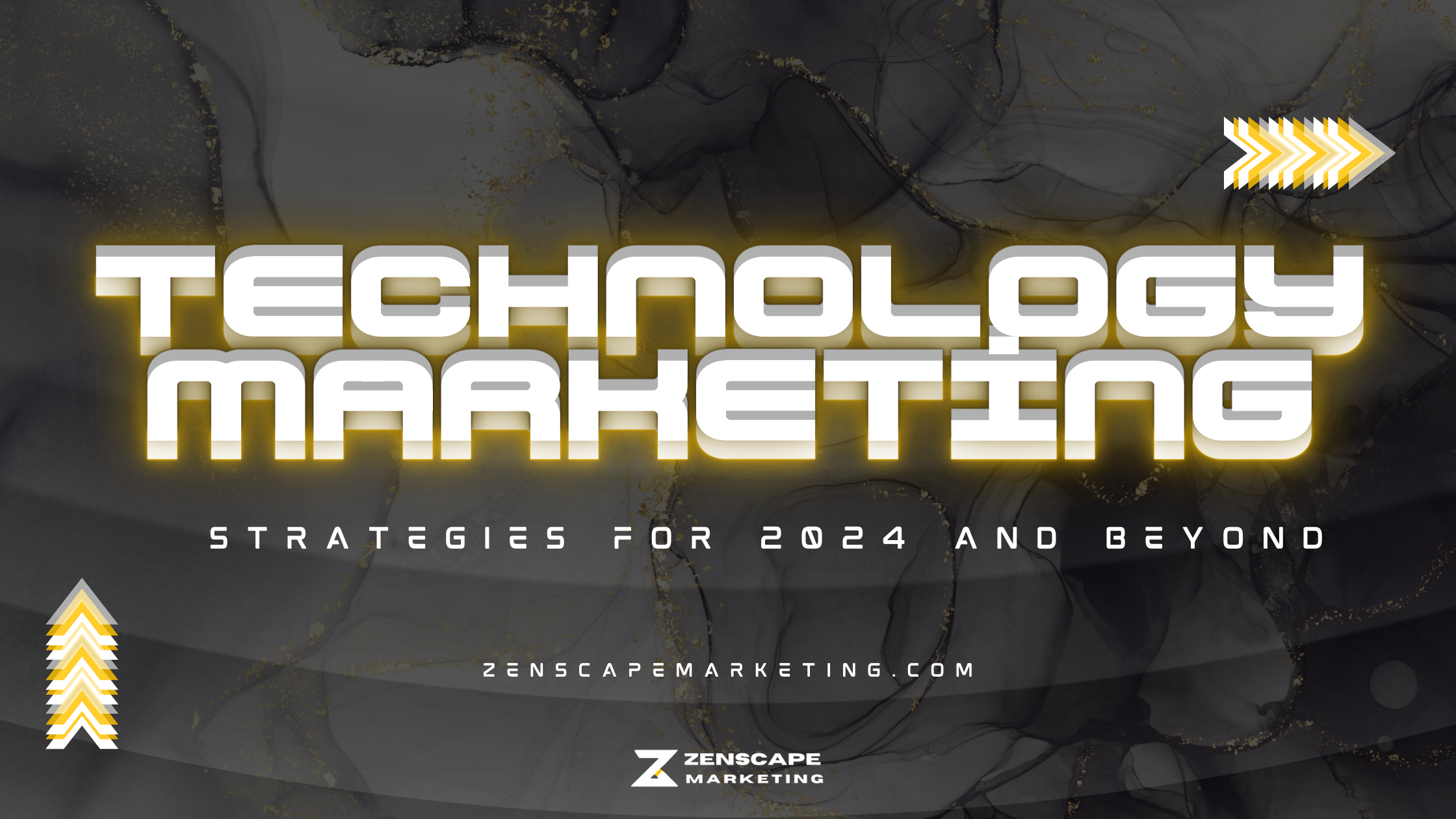The pace of change in the technology sector is blistering. Each year brings innovations, platforms, and communication channels. For technology companies, this dynamic landscape presents both opportunities and challenges from a marketing perspective. To stay ahead in 2024 and beyond, tech brands must continually evaluate and evolve their marketing strategies. As emerging technologies transform how people discover, research, buy, and engage with tech products, marketing tactics need to adapt in kind. This article explores the key evolutions in technology marketing on the horizon and tangible strategies to succeed in the future. By embracing these changes and trends early, tech marketers can maintain an edge over the competition in an industry where each month brings new developments.
Let’s dive in and uncover what the future holds for technology marketing!
Leveraging AI and Automation
One of the biggest technology game-changers for marketing is the rise of artificial intelligence and automation. Forward-thinking tech brands are already tapping into the power of AI to optimize campaigns. By 2024, leveraging AI will be a competitive necessity.
AI tools can crunch vast volumes of data to predict optimal customer segments and journeys. Detailed psychographic profiles powered by machine learning aid precise micro-targeting. AI drives designing, testing, and iterating efficiencies on digital ads and content.
Chatbots with natural language processing handle customer inquiries at scale. AI analyzes tone and emotion in social media conversations to craft appropriate responses. It even generates initial drafts of marketing copy tailored to the target audience.
Intelligent automation handles repetitive marketing tasks so teams can focus on high-impact strategies. Built-in machine learning continuously improves performance.
Leveraging AI across the marketing tech stack will be essential for doing more with less while generating hyper-personalized experiences.
Capitalizing on Extended Reality (XR)
Extended reality, encompassing virtual reality (VR), augmented reality (AR), and mixed reality (MR), is revolutionizing technology marketing opportunities.
By 2024, XR-enabled marketing activations will be a must-have. Tech companies can offer highly immersive product experiences by giving customers virtual demos and trials through AR/VR. Showrooming state-of-the-art tech products becomes far more accessible.
XR opens new avenues for experiential marketing at conferences and events. Attendees can engage with tech products and solutions in a uniquely interactive environment.
Tech brands can drive brand awareness through AR advertisements on social media, digital OOH displays, and mobile apps. AR retail displays become shoppable product experiences.
As XR devices and content platforms grow in adoption, tech marketers should be ready to capitalize early. Being the first mover in using XR for demos, events, and ads offers an advantage over the competition.
Rethinking Customer Journeys
Technology buying journeys are becoming more complex, with buyers engaging on multiple channels and requiring more education. This demands tech brands rethink how they attract, nurture, and convert leads.
Targeted content experiences through the entire funnel will be crucial. Lookalike modeling helps identify buyer personas primed for your tech offerings. AI-optimized messages and incentives guide prospects seamlessly through each journey stage.
Omni-channel personalization is key to engaging today’s omni-channel buyers. Tailor interactions across devices and platforms based on interests, behavior, stage, and history. Maintain context and continuity.
Micro-moments matter. Insert your brand and content into critical decision-making moments. Be there throughout the buying journey, not just at the end sales push.
As customer journeys fragment across platforms, tailored experiences dictate marketing success. Master this through tech-enabled personalization.
Building Marketing Technology Stacks
Martech adoption is exploding. Savvy tech marketers are assembling martech stacks with best-of-breed tools for automation, analytics, segmentation, campaign management, and more.
Integrating platforms into a centralized hub that unifies data, surfaces insights, and streamlines workflows is key. Critical capabilities to have by 2024 include:
Smart CRM –
AI-enabled for lead scoring and personalization.
Customer Data Platform –
Centralizes data from all sources.
Marketing Automation –
Nurtures buyers through customized journeys.
Digital Commerce –
Unified shopping experiences across touchpoints.
Mobile Marketing –
Optimized apps, messaging, and on-the-go engagement.
Assembling the right stack will look different for each tech company. However, having an integrated suite of marketing technologies will be mandatory to compete at the highest level.
Connecting Through Values
In 2024, marketing to technology buyers will be less about touting product features and more about securing your brand values and purpose.
Buyers – especially millennials and Gen Z – want to engage with tech brands prioritizing transparency, sustainability, diversity and inclusion, and social responsibility.
Highlight how you support important causes through donations, volunteering, ethical sourcing policies, and environmental initiatives.
Share the human stories behind your brand. Foster a community around your larger mission beyond profits. Authenticity and contribution will resonate.
This represents a marketing shift – from focusing merely on functional benefits to aligning brand values with your audience’s values—mission over messaging.
Conclusion
The technology sector never stops rapidly evolving. Tech marketers must stay on the cutting edge of that change to engage, convert, and delight customers.
Leveraging AI, capitalizing on XR, optimizing complex journeys, integrating martech stacks, and connecting through shared values represent the next wave of marketing.
Now is the time for tech brands to invest in the strategies, technologies, and frameworks to drive success in 2024 and beyond.
By maintaining an innovative mindset, tech marketers can feel confident they have the tools and approaches to grow and flourish for years. The future remains brightly open for brands willing to evolve.
Future-Proof Your Tech Marketing with Help from the Experts at Zenscape
This article revealed crucial strategies for tech marketing success in 2024 and beyond. To implement them seamlessly, leverage the expertise of Zenscape Marketing.
Here is how we can help:
– Martech Consulting – We’ll thoroughly audit your marketing technology stack and identify opportunities to integrate AI and automation.
– Extended Reality – Our team will brainstorm and produce cutting-edge XR campaigns and experiences tailored to your brand.
– Customer Journey Optimization – We’ll map your customer journeys and develop data-driven personalization strategies.
– Growth Roadmapping – Zenscape will create a comprehensive plan to future-proof your marketing across channels.
The clock is ticking – 2024 will be here before you know it! Now is the time to ensure your marketing is primed for the next wave of innovation and evolution.
Don’t get left behind. Click here to take the first step and request a free tech marketing consultation today. Let’s future-proof your marketing together.






